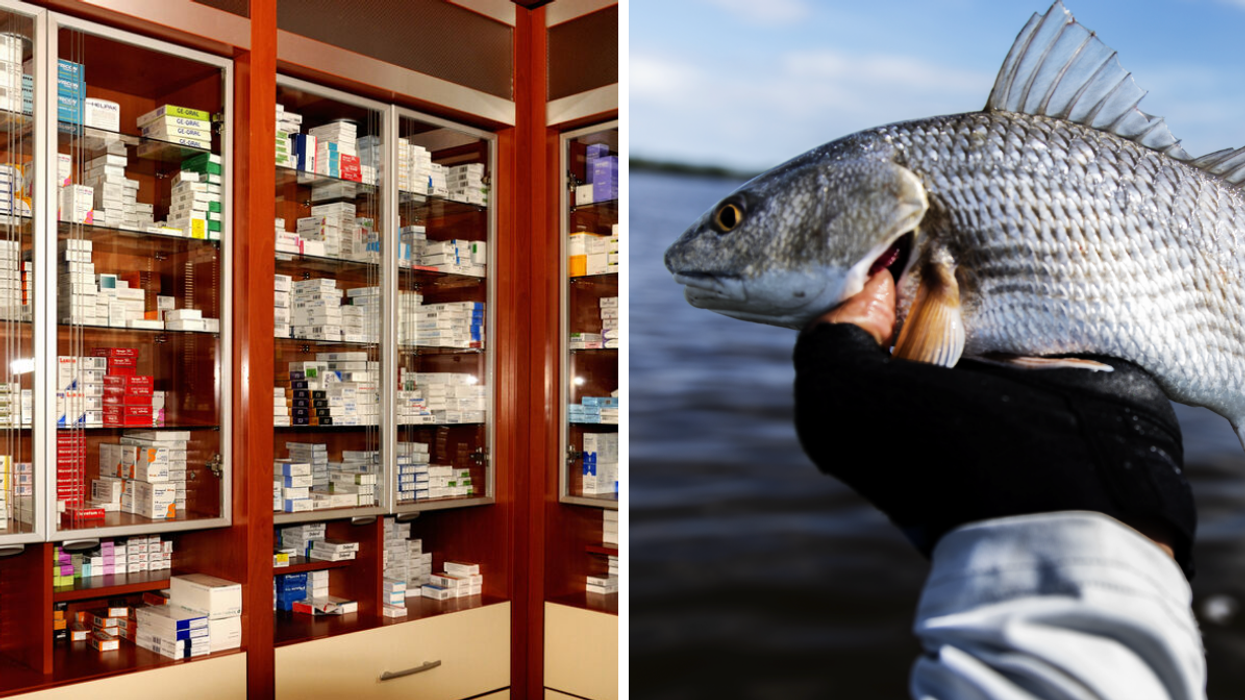Florida Fish Were Found On Drugs & Here's Which Substances Are Contaminating The State's Water
The state's government doesn't regulate hazardous waste disposal in a household.

A pharmacy. Right: A redfish.
Researchers from from Florida International University (FIU) and the Bonefish & Tarpon Trust (BTT) found drugs in the bloodstream and tissue of redfish. Scientists have studied pharmaceutical contaminants in marine life since last year in nine of Florida's estuaries on the east and west coast, and realized the problem has only grown since 2022.
In February 2022, the same pairing of teams had shared the results of a three-year-long study finding contaminants in bonefish in Biscayne Bay and the Florida Keys.
Now, they've found different medications such as cardiovascular medications, opioid pain relievers, and psychoactive medications in fish from various areas, including Jacksonville, Tampa and Pensacola.
The study reveals that "the antiarrhythmic medication flecainide and the opioid pain reliever tramadol were found in more than 50% of redfish."
An average of two types of drugs per fish were found, with a maximum of five substances found in some of the sea life.
"Given the impacts of many of these pharmaceuticals on other fish species and the types of pharmaceuticals found, we are concerned about the role pharmaceuticals play in the health of our fisheries," said FIU professor and the study’s lead researcher, Jennifer Rehage.
According to information from the National Center for Biotechnology and Information (NCBI) gathered in a study from Southern Connecticut State University, there are no official guidelines on how to manage pharmaceuticals and personal care products (PPCP) in the nation, and "each state has the authority to choose how they dispose of waste."
The NCBI also notes that, oftentimes, pharmaceuticals in households are thrown out in the trash or sewage. The latter half of that seems to be a larger issue in the Sunshine State, but both types of disposal can lead pharmaceuticals to Florida's waterways.
As far as Florida's guidelines, the Florida Department of Environmental Protection reports that the state adopted a management amendment for hazardous waste.
While the rules list that health care facilities can't dispose of this kind of trash down the toilet or drain, the website does mention that the government does not regulate waste inside a home.
Researchers say they are looking to modernize and improve wastewater treatment plants to help the health of Florida's fisheries.
This article's cover image was used for illustrative purposes only.